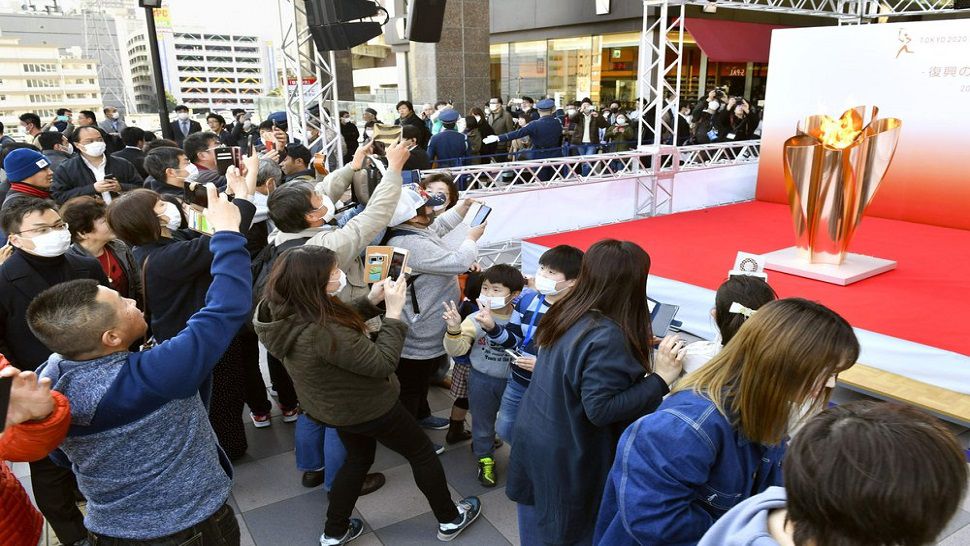LAUSANNE, Switzerland — The IOC will take up to four weeks to consider postponing the Tokyo Olympics amid mounting criticism of its handling of the coronavirus crisis that now includes a call for delay from the leader of track and field, the biggest sport at the games.
- The International Olympics Committee will talk with its partners about potential postponement of the 2020 Olympics
- The 2020 Tokyo Summer Games are scheduled to begin July 24 and run through August 9
- Cancellation is not on the agenda, according to the IOC
The IOC is planning meetings with Japanese public authorities, global sports officials, broadcasters and sponsors that will deal with scenario planning for the Olympics, which are scheduled to start July 24. Canceling the games is not under consideration.
IOC President Thomas Bach sent a letter to athletes explaining the decision and why it might take so long, while also acknowledging the extended timeline might not be popular.
“I know that this unprecedented situation leaves many of your questions open,” he wrote. “I also know that this rational approach may not be in line with the emotions many of you have to go through.”
But only hours after the announcement, World Athletics President Seb Coe sent a letter to Bach saying that holding the Olympics in July “is neither feasible nor desirable.” He outlined a number of reasons, including competitive fairness, the likelihood athletes would overtrain if given a compressed schedule and the uncertainty caused by orders in many countries barring people from gyms and other workout venues.
“No one wants to see the Olympic Games postponed but ... we cannot hold the event at all costs, certainly not at the cost of athlete safety,” he wrote. “A decision on the Olympic Games may become very obvious very quickly.”
But probably not sooner than next month.
The IOC said the scenarios under consideration “relate to modifying existing operational plans for the Games to go ahead on July 24, 2020, and also for changes to the start date of the Games.”
The change in strategy followed Bach’s conference call with executive board members.
Bach has consistently said organizers are fully committed to opening the games on July 24 — despite athlete training, qualifying events and games preparations being disrupted more and more by the virus outbreak causing the COVID-19 disease.
Criticism of the stance grew in recent days from Olympic gold medalists and by an IOC member last Tuesday, before Bach finally acknowledged an alternative plan was possible.
National Olympic committees in Brazil and Slovenia later called for a postponement to 2021. Norway’s Olympic body said it did not want athletes going to Tokyo until the global health crisis is under control.
The United States governing bodies of swimming and track — two of the three top-tier Summer Games sports — have called on their national Olympic officials to push for a postponement.
“There is a dramatic increase in cases and new outbreaks of COVID-19 in different countries on different continents,” the IOC said. “This led the (board) to the conclusion that the IOC needs to take the next step in its scenario-planning.”
The IOC said last week that roughly 4,700 of 11,000 spots in the Olympics have yet to be allocated.
Bach acknowledged the problems that come with a compressed or radically altered qualifying schedule, but also laid out several reasons that the IOC could not rush to a decision.
It included the availability of venues that are scheduled for use this summer but might not be available at a later time and the disruption of future events in the individual sports.
“A decision about a postponement today could not determine a new date for the Olympic Games because of the uncertain developments in both directions: an improvement, as we are seeing in a number of countries thanks to the severe measures being taken, or a deteriorating situation in other countries,” Bach said.




